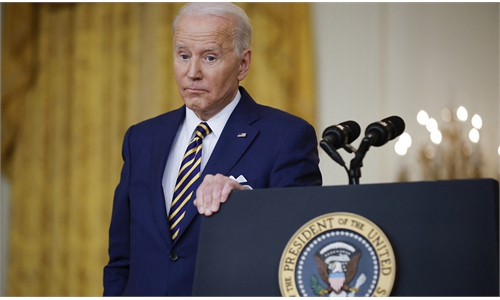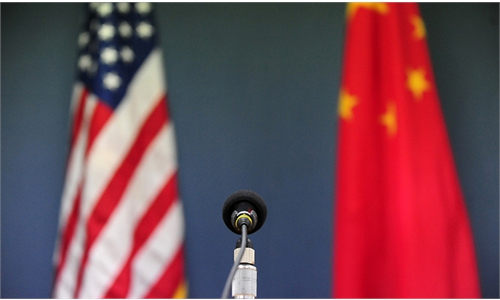Mainland summarizes cross-Straits exchanges in past decade, says historical trend of reunification cannot be changed by any force

A view of the Taiwan Straits is seen from Xiamen port, in East China’s Fujian Province. Photo: IC
"The great rejuvenation of the Chinese nation has entered an irreversible historical process. The time, momentum and righteousness of reunification are on the side of the Chinese mainland," Chen Yuanfeng, deputy head of the Taiwan Affairs Office of the State Council said at a press conference on Wednesday, in which mainland officials reported the development of cross-Straits relations over the past decade and reiterated the firm resolve to realize national reunification in the face of provocation from secessionists and external forces.
Analysts said despite the increasingly complex and grim situation across the Taiwan Straits, the mainland remains calm and patient in promoting peaceful reunification. Such confidence comes from the irreversible economic, cultural and social integration between the two sides of Taiwan Straits, from which the people enjoy practical benefits, as well as from the growing national strength and the 1.4 billion public opinion base.
During the conference, Chen summarized progress in cross-Straits exchange, in aspects including dialogue between political parties and leaders and exchanges between the people, policies and measures to ensure the well-being of Taiwan compatriots on the mainland, and the strengthening of economic and trade ties.
According to Chen, trade across the Straits was $160.03 billion in 2011 and by 2021, it had doubled to $328.34 billion. "The Chinese mainland remains Taiwan's largest export market, largest source of trade surplus, and largest destination for investment by Taiwan businessmen."
It is worth noting that the achievements summarized by Chen came amid a deterioration in cross-Straits relations, especially after the secessionist Democratic Progressive Party (DPP) leader Tsai Ing-wen took office in 2016.
Chen said that the mainland is growing more powerful in striking against Taiwan secessionism and foreign interference, with a firmer will and determination to achieve national reunification. "The historical trend of the reunification of the motherland cannot be changed by any force's obstruction or destruction."
The prospect of peaceful reunification still exists and it is not as pessimistic as Western media depicts, despite external intervention in the Taiwan question, Zhang Wensheng, a deputy dean of the Taiwan Research Institute at Xiamen University told the Global Times on Wednesday.
The attraction of the Chinese mainland to Taiwan people is growing with the mainland's development, Zhang said.
More importantly, Taiwan people have benefited from the exchanges between the two sides of the Straits. In the future, integration will only get closer, in terms of economy, culture, society and other aspects, Zhang said.
Wang Yu-ching, a Taiwan cross-Straits observer who lives in the Chinese mainland, told the Global Times that Taiwan people are eager for peace and it is expected that Taiwan people will call on the DPP authorities to ensure peace and stability amid escalating tensions rather than fan the flames.
Taiwan compatriots can now learn about the situation on the mainland from the internet and even share their lives and talk through social media, Wang said.
"Taking the recent earthquake in Taiwan's Hualien as an example, many Taiwan people have received text messages of greetings from friends on the mainland, who got immediate information about the earthquake in Taiwan from online media."
Any attempt by the DPP authorities to cut the bond between people on the two sides of the Taiwan Straits will only unpopular, Wang said.
Zhu Fenglian, a spokesperson of the Taiwan Affairs Office, said at Wednesday's press conference that the mainland will introduce more policies that benefit Taiwan people, and continue to create favorable conditions for cross-Straits exchanges and cooperation to promote the peaceful development of cross-Straits relations, and advance the process of national reunification.
On the other hand, Zhu said the mainland will continue to take measures against diehard Taiwan secessionists in accordance with the law, and intensify punishment on secessionists who make outrageous statements about secession, commit egregious acts seeking secession, and engage in rampant activities "leaning on the US for secession."
Replying to questions over the future arrangements after reunification, Taiwan Affairs Office spokesperson Ma Xiaoguang said after the reunification, the Taiwan region may practice a social system different from that of the mainland, and Taiwan compatriots can live and work in peace and tranquility, as the central government will be in a better position to take care of them.
Experts said that after reunification, the interests of Taiwan pro-secessionist officials would be damaged, and that is why they reject reunification. But for the people of Taiwan, under "one country, two systems," they will certainly enjoy better social welfare and development opportunities than they do now.
"We are ready to strive for the prospect of peaceful reunification with utmost sincerity and utmost efforts," Ma said, noting that the confidence comes from China's development and people's support.
The Taiwan question arose out of the weakness and chaos of the Chinese nation, and it will be resolved as national rejuvenation becomes a reality, Ma said.
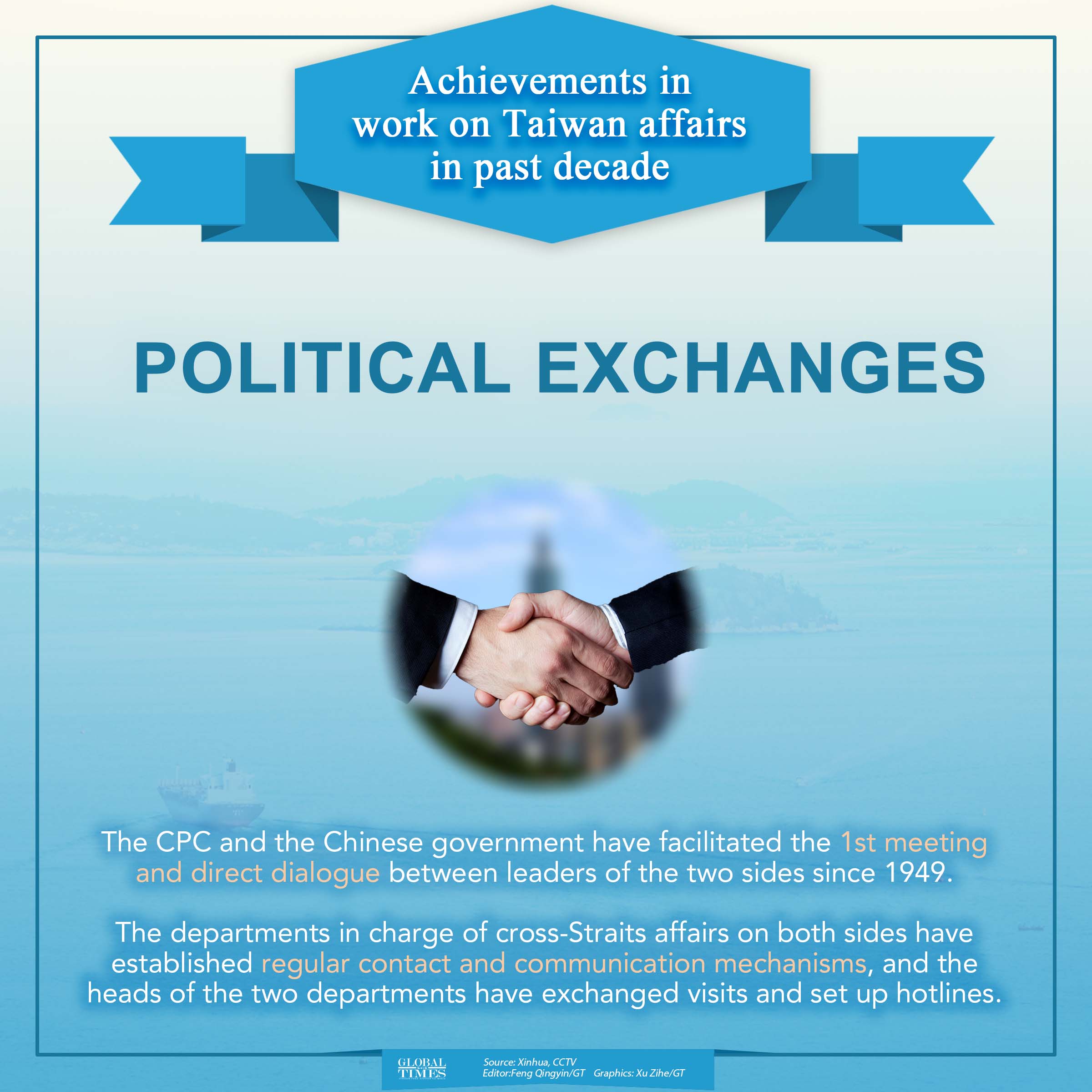
Achievements in work on Taiwan affairs in the past decade. Graphic: Feng Qingyin/GT
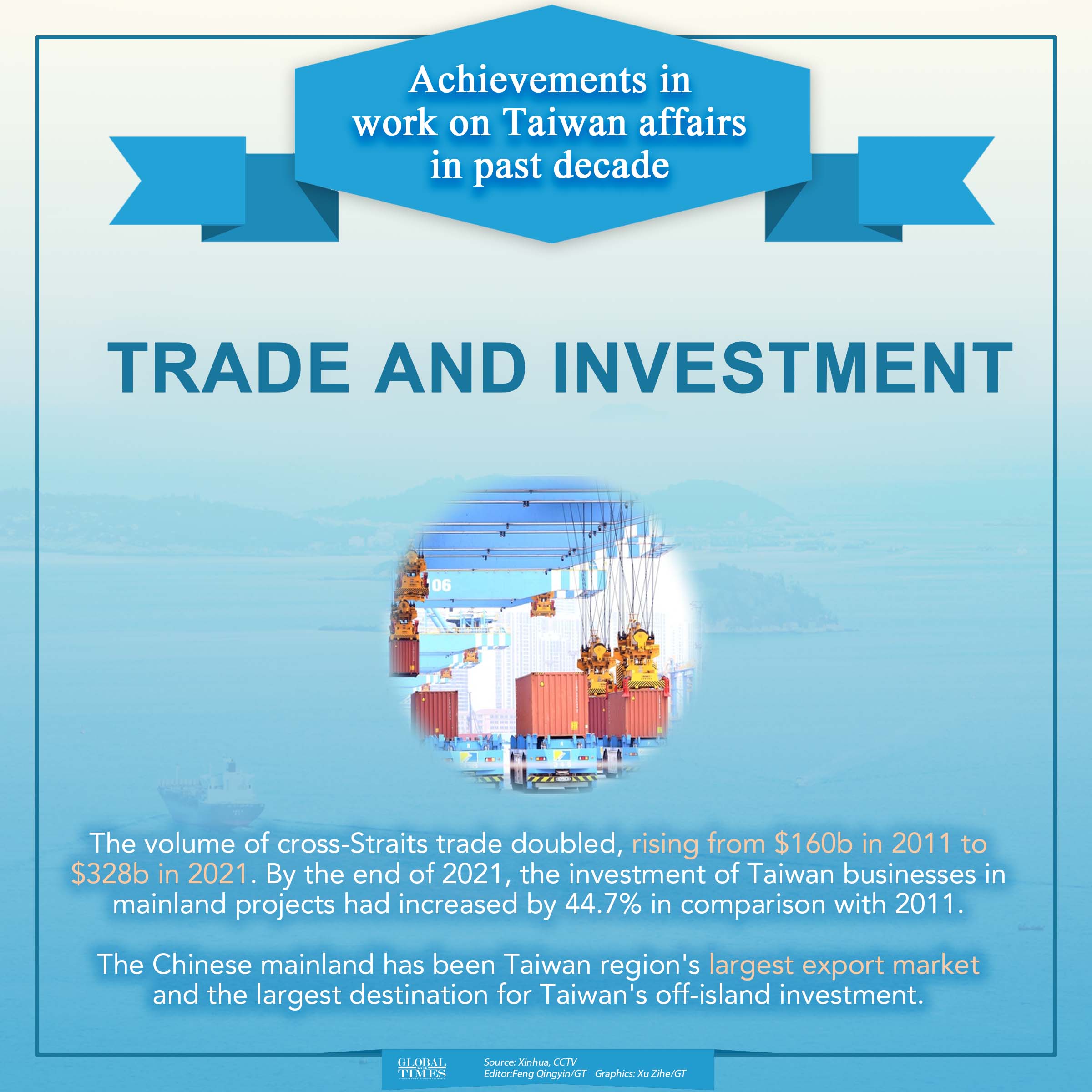
Achievements in work on Taiwan affairs in the past decade. Graphic: Feng Qingyin/GT
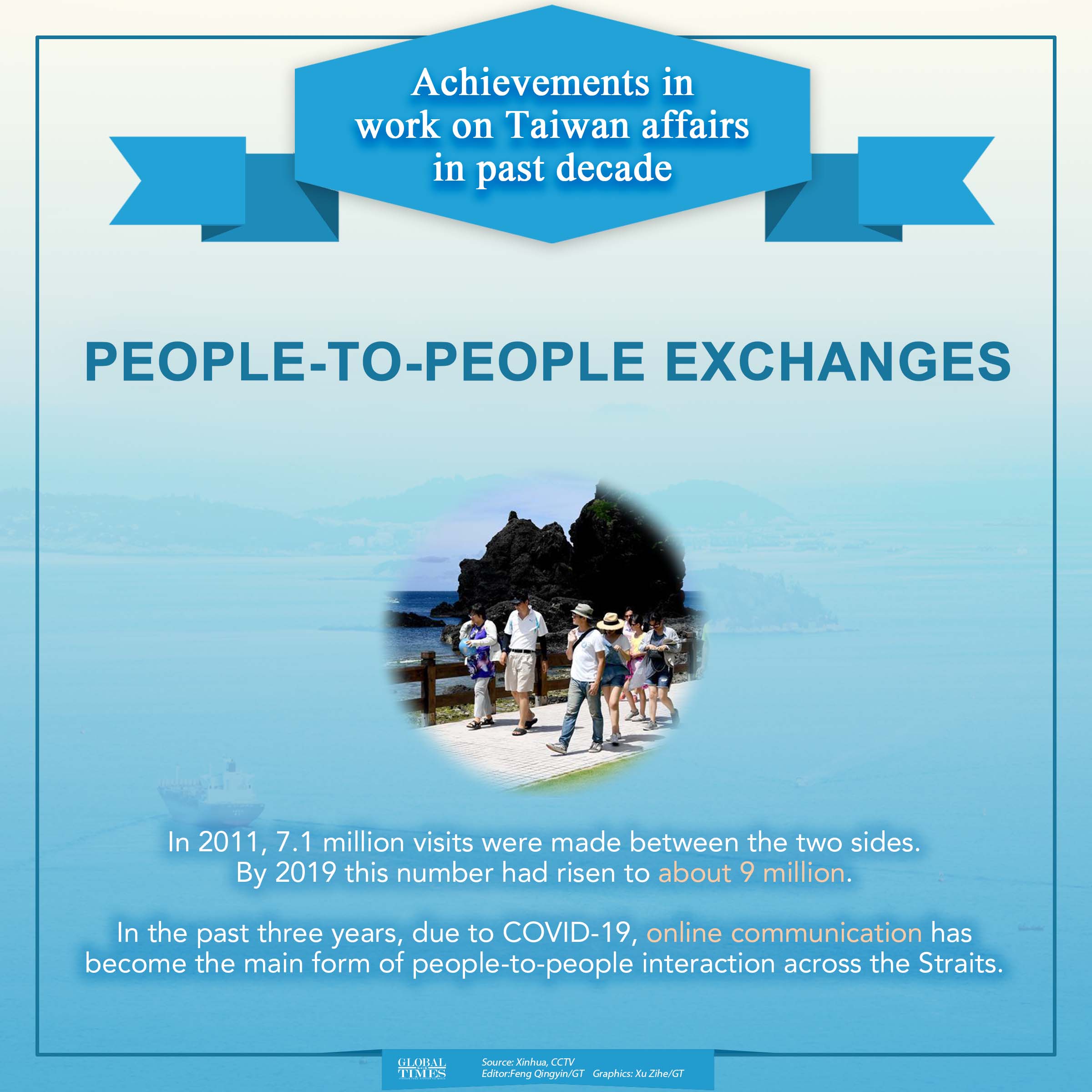
Achievements in work on Taiwan affairs in the past decade. Graphic: Feng Qingyin/GT
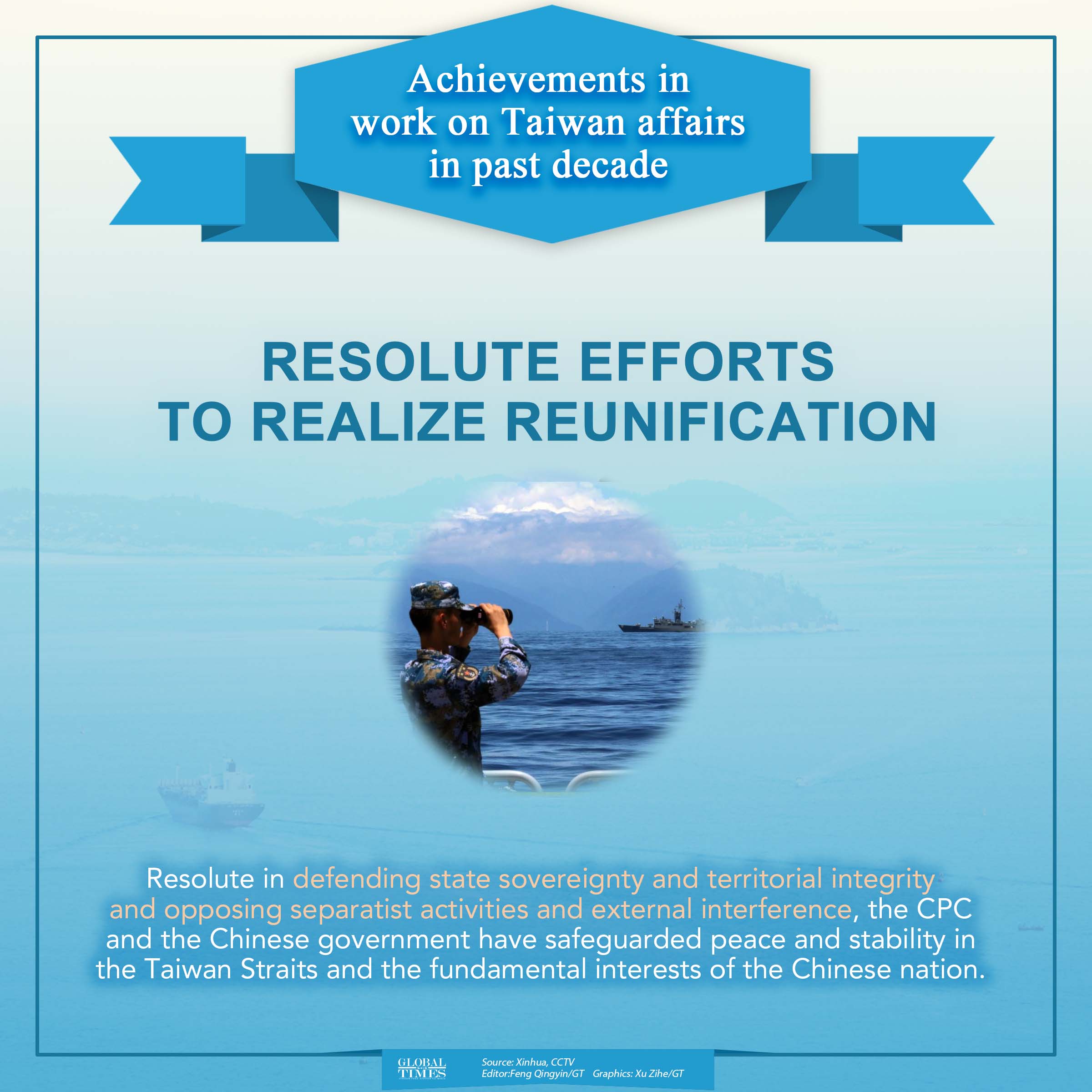
Achievements in work on Taiwan affairs in the past decade. Graphic: Feng Qingyin/GT

